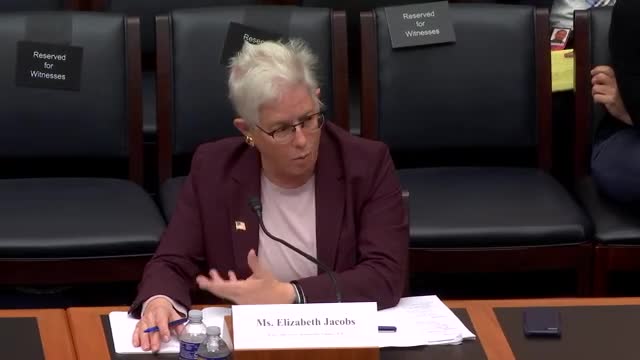Lawmakers clash over foreign influence on US banking regulations
September 12, 2024 | Financial Services: House Committee, Standing Committees - House & Senate, Congressional Hearings Compilation
This article was created by AI summarizing key points discussed. AI makes mistakes, so for full details and context, please refer to the video of the full meeting. Please report any errors so we can fix them. Report an error »

In a recent government meeting, discussions centered around the influence of foreign organizations on U.S. financial regulations and the implications of climate-related policies on banking practices. Key participants expressed concerns about the Federal Reserve's engagement in climate policy, questioning whether its supervisory responsibilities allow for such actions. Professor Skinner emphasized that the Fed's mandate does not legitimize attempts to \"green\" the financial system, contrasting it with European approaches that allocate capital based on environmental considerations.
The dialogue also highlighted the potential risks of U.S. regulators adopting nonbinding recommendations from international organizations, which some lawmakers argue could undermine the independence of American financial institutions. Critics pointed out that translating these recommendations into binding regulations could detrimentally affect the U.S. banking system, particularly if they do not align with the unique economic landscape of the country.
Additionally, concerns were raised about the regulatory framework favoring large corporations over small businesses, with specific reference to the risk weights assigned to different types of investments. Lawmakers argued that this approach could lead to a misallocation of capital, disadvantaging local businesses that rely on loans rather than public market financing.
As the meeting concluded, participants expressed a desire for future discussions to focus on the specific aspects of proposed regulations rather than broader geopolitical concerns, aiming for a more nuanced examination of how these policies impact the American economy and its financial institutions.
The dialogue also highlighted the potential risks of U.S. regulators adopting nonbinding recommendations from international organizations, which some lawmakers argue could undermine the independence of American financial institutions. Critics pointed out that translating these recommendations into binding regulations could detrimentally affect the U.S. banking system, particularly if they do not align with the unique economic landscape of the country.
Additionally, concerns were raised about the regulatory framework favoring large corporations over small businesses, with specific reference to the risk weights assigned to different types of investments. Lawmakers argued that this approach could lead to a misallocation of capital, disadvantaging local businesses that rely on loans rather than public market financing.
As the meeting concluded, participants expressed a desire for future discussions to focus on the specific aspects of proposed regulations rather than broader geopolitical concerns, aiming for a more nuanced examination of how these policies impact the American economy and its financial institutions.
View full meeting
This article is based on a recent meeting—watch the full video and explore the complete transcript for deeper insights into the discussion.
View full meeting